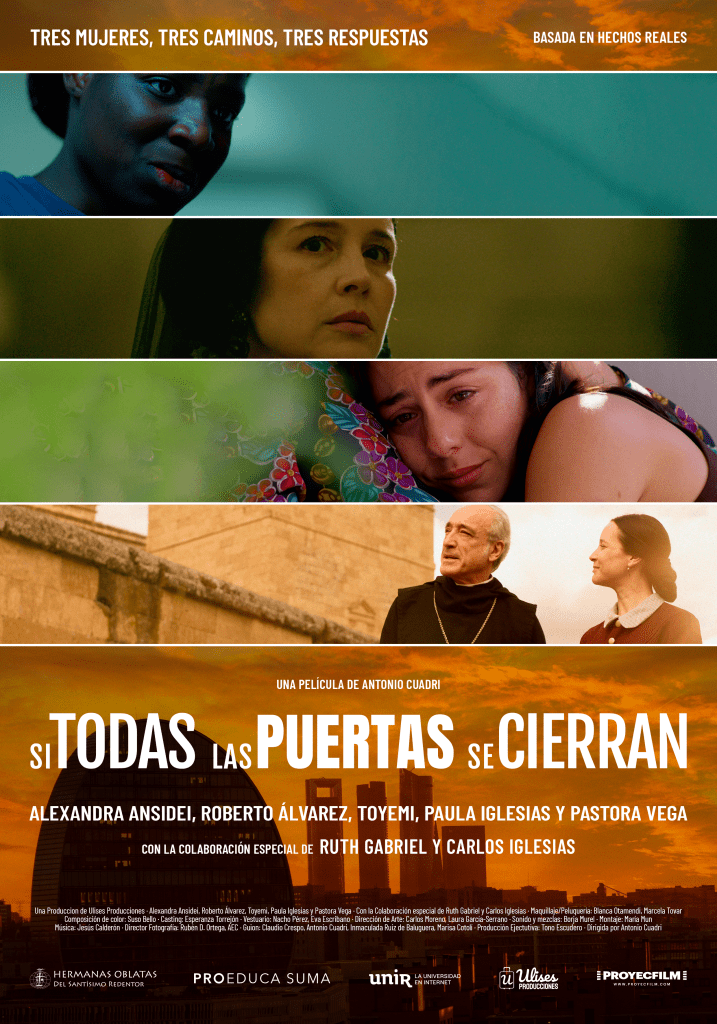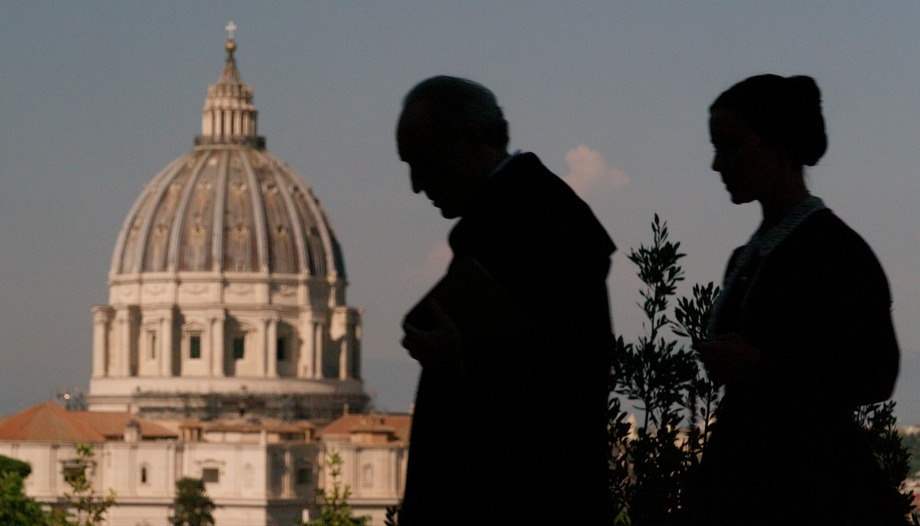There is a film that "tells the story of three women, apparently separated in time and space, but who end up converging in their process to find themselves. The three will have to listen to an inner call that requires them to face their fears and be the true protagonists of their lives, opening new paths of transformation and liberation". This is how they explain on the web page the plot of "If all doors are closed"the new film by Antonio Cuadri.
Cuadri is a screenwriter and film director. Among his works there are titles such as "La gran vida", "El corazón de la tierra" or "Thomas vive". Now he presents his new project, involved with the Oblate Sisters of the Most Holy Redeemer.
The Oblates live in community and dedicate their lives to bringing the Gospel to women in prostitution and/or victims of trafficking. Their founder inspires the message of this film, as Antonio Cuadri explains in this interview with Omnes.
How did you decide to carry out this project?
-This project has its roots nine or ten years ago. My wife is a social educator and an operative and volunteer collaborator with the religious congregation of the Oblates of the Most Holy Redeemer. I came into contact with the work of these nuns and was very impressed. I witnessed the accompaniment they provided.
They try to socially integrate women in prostitution, especially those who are victims of trafficking. They do a wonderful job, very quietly and silently. They break the stereotype that many people have of nuns indoctrinating misguided girls. It's not like that at all.

The humble and silent attitude, the accompaniment, impressed me a lot. Then we began to see the possibility of doing a volunteer action through a film.
A few years after that first contact, the Oblates were celebrating in Ciempozuelos (Madrid, Spain) the 150th anniversary of the opening of the first shelter they opened, in the 19th century. On this occasion, I wrote a short play, which has been the origin of the script of "Si todas las puertas se cierran" (If all the doors close).
Already at that time it was envisaged that March 2022 to March 2023 would be the year of the bicentenary of the birth of the founder, Antonia María de Oviedo y Shönthal.
The story of the founder is wonderful, like a movie. With a lot of effort and dedication, and with the selfless collaboration of many people, both the technical team and the artists, we have made this film a reality.
What was the most important thing in writing this story?
-There are two Oblate nuns, Marisa Cotolí and Inmaculada Ruiz de Balugera, who have collaborated with Claudio Crespo and myself, who are the scriptwriters.
The most important thing in writing the script was to be faithful to the charism and mission of the Oblates, to their focus. This is the accompaniment and the help.
They did not want to make a film about the history of the foundress, but about the actuality and the survival of Mother Antonia's work and message today.
We wanted to make something very lively. In fact, the script is structured on three levels. On the one hand, there is the story of the founder in the 19th century, which is the period part. And from there we jump to two current stories, all based on real events. There is the story of a Nigerian woman in Spain, a victim of trafficking, and that of a young teacher who helps the daughter of this woman. They come into contact with the Oblates and from there they connect with the foundress.
Why is Mother Antonia's story relevant today? What is the message that Mother Antonia can bring us today, so many years later?
-I believe that, although it is not very fashionable, love, gratuitousness in love in the key of the Christian message, is something eternal. It could be a paradox for many people who perhaps do not know enough about the Church's social action. I think that giving visibility to this message is very interesting.
The story of the film is very delicate. You talk about prostitution, children with childhood depression... Are there special difficulties in bringing such a story to the big screen?
-I think the limit is in good taste. You have to suggest rather than show. We have to do it in a very respectful way, but at the same time, in a very brave way. We are showing a very hard reality, but we are aware that we are showing a story of overcoming. There is a positive message: if all the doors are opened, something opens in the end. It is an encouraging, luminous message.
We are at the antipodes of what could be a morbid treatment. Reality is shown, it is quite evident, but we are guided by elegance, by good taste, and always raising that door of hope.
What are you looking forward to with this project and what do you hope viewers will take home with them?
-It would be nice if viewers could get to know the work of the Oblates. In a world full of so many interests, it is nice to invite the viewers to look at these women who do their work with such great faith and affection.
Secondly, the project is a call to volunteerism. And finally, it would be great if the public could grasp the call to love that is in this story. It is very moving to see how these women, moved by their faith, deeply feel the pain of others. womenThey do not stop there, but act and dedicate their lives to offering other alternatives and social integration.
All this seems to me important enough to invite viewers to see the film. The profits are at the service of the social work of the Oblates. But I want it to be known that going to the cinema to see this film is, in a way, to support the project they have.
This film seeks to move, but not emotion for emotion's sake. It is an emotion shared with empathy and with the wonderful capacity for solidarity that the Oblates have.








